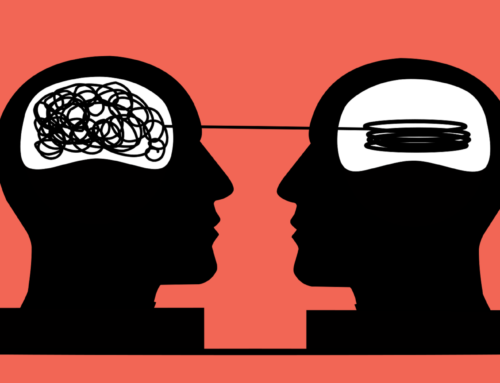Were you one of the more than 16,000 people who completed ABC’s How ‘mental health smart’ are you? quiz a couple of years back?
If so, a team of Melbourne University researchers would like to thank you. Your answers have provided important insights that could help shape future mental health education campaigns.
“We certainly have data from large population surveys,” said associate professor Nicki Reavley, one of a team of mental health experts the ABC approached for help in writing the survey, which was published in Mental Health week in 2015.
In return, the ABC agreed to provide data on audience responses — an opportunity the researchers relished.
The data, which did not include any information that could identify individuals, has now been analysed and published in the academic journal Advances in Mental Health: Promotion, Prevention and Early Intervention.
It shows we’ve come a long way in understanding some mental conditions like depression, but also reveals some important misconceptions remain in other areas, including anxiety disorders, psychosis and schizophrenia.
Psychosis involves disorganised thinking, and seeing or hearing things that aren’t real. When episodes of psychosis are recurring, a diagnosis of schizophrenia may be made.
Gaps in knowledge
The quiz presented statements about different mental health conditions and respondents were asked if they agreed or disagreed with each.
“To recover from anxiety disorders, you have to face situations that provoke your anxiety,” was the quiz item with the least correct responses; only 41 per cent of people knew this statement was correct.
And only 54 per cent of people knew that when someone was having delusions — believing something that isn’t real — it was best not to try to reason with them.
In contrast 98 per cent of respondents knew exercise could help relieve depression.
“People are quite good on depression … they’re much less likely to think someone’s weak or that they can snap out of depression [than in the past]. Organisations like beyondblue have done a really good job in the past 20 years of raising awareness. But for anxiety and less common disorders like psychosis, I’d say there’s a fair way to go.
“The question people did least well at was one that said if you’re anxious about something, you should avoid the situation.
And current evidence suggests that when someone is having delusions — say believing aliens come into their house at night and move their furniture — it’s best not to try to talk them out of their belief using rational arguments.
“They can become more agitated and it’s not necessarily going to be helpful,” Dr Reavley said.
– Cathy Johnson
Read More: ABC mental health quiz results help experts shape future campaigns
Image by Christopher Ott from Unsplash








Leave A Comment